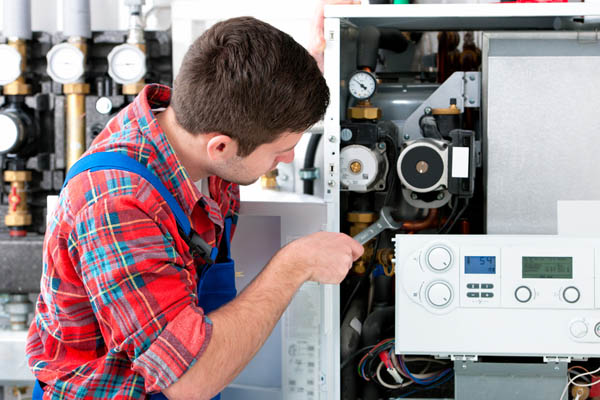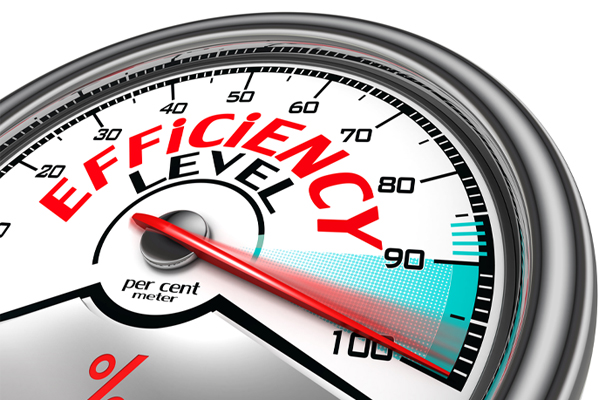Contents
- 1 Common Problems You Might Encounter With A Residential Boiler
- 2 When Is It Time To Replace My Residential Boiler?
- 3 What Are The Advantages Of A Boiler Replacement?
- 4 Things To Consider Before Purchasing A New Boiler
- 5 Is There A Difference Between High-Efficiency Boilers Vs. Standard Efficiency Boilers?

Many people depend on their residential boiler to keep their homes warm during the coldest days of the year. However, what happens when an old boiler begins to show signs of trouble? You may have to decide whether to have it fixed or simply replace it. Fortunately, there are some things to consider when determining this.
Common Problems You Might Encounter With A Residential Boiler
In this article, we discuss some common boiler issues. We also cover tell-tale signs that indicate the need for a boiler replacement. We also discuss some of the advantages that you will receive with a boiler upgrade.
Boiler Turns Itself Off
There can be several reasons why a boiler will switch itself off. For example, it could be a frozen condensate pipe, a faulty pump, problems with the air pressure, or it could even be a thermostat issue.
Pilot Light Goes Out
If the boiler repeatedly switches off the pilot light, there might be a faulty thermocouple or damaged seals. This is not an issue that you should attempt to fix on your own. Rely on a licensed HVAC company for problems with a boiler pilot light.
Boiler Is Leaking
A boiler that is leaking might have loose connections or damaged components. It could also be rusting from the inside out. It’s crucial to have the unit inspected by a licensed HVAC contractor right away to ensure your safety.
Low Pressure
A boiler that operates with a pressurized system might begin to lose pressure due to problems such as a water leak or issues with the expansion vessel. Understandably, you might consider trying to repair your residential boiler yourself using the system’s instruction manual. However, when it comes to home heating systems, it is much safer to call an experienced HVAC company.
When Is It Time To Replace My Residential Boiler?
Below, we discuss some things to consider when contemplating a boiler replacement vs. a boiler repair.
Boiler Age
As the boiler ages, it will need to work harder to keep your home warm. The average lifespan of a residential boiler is approximately 15 years. Typically, a boiler will begin to show symptoms of wear-and-tear a few years before it is 15 years old. If your boiler is nearing the end of its lifespan, then it is time to start putting money aside for a boiler replacement.
Lowered Boiler Efficiency
Age is one factor, but damage or neglect can also make a boiler less efficient. A boiler that has reduced efficiency will need to work harder in order to produce sufficient heat to maintain a comfortable home environment. This means you’ll end up paying more for energy bills than you would if you had a more efficient, newer boiler.
Radiators With Hot And Cold Spots
A radiator that has warm and cold areas likely has a sludge build-up or trapped air in the system. This can result in heat distribution that is not uniform.
Strange Boiler Noises
It’s not normal for a residential boiler to make banging, gurgling, or whistling noises. If you notice that your boiler is making unusual noises, it’s time to call a boiler service company for a proper diagnosis and professional repairs.
Frequent Boiler Repairs
If the repairs your boiler needs are half or more of the cost as replacing the system, you’ll probably want to get a new boiler. Additionally, if you find that you’re needing to have boiler repairs several times each year, it’s a good idea to begin shopping for a new boiler. It’s much smarter to invest your money in a new boiler than it is to keep trying to maintain a failing boiler system.

What Are The Advantages Of A Boiler Replacement?
When you’re trying to decide between a boiler replacement or repairs, take some time to consider the benefits that a new boiler can provide.
- Increased Home Comfort: When you want a warm home environment, a new boiler can ensure optimal results. You’ll have the peace of mind that comes from knowing that you have a boiler that will keep on heating your home, even on the coldest days of winter.
- Reduced Energy Bills: A new high-efficiency boiler doesn’t require the same amount of energy as an older system. Additionally, a new boiler can optimize fuel, ensuring your home stays warm with less expense.
- Lower Boiler Operating Costs: With a new boiler installation, you’ll have a system with fresh components that will function efficiently for many years. This means that you can forget about paying for frequent checkups or repairs for your boiler.
- Warranty: A new boiler will come with a warranty providing coverage for parts and repairs. This is an excellent way to ensure exceptional service if the need arises.
Things To Consider Before Purchasing A New Boiler
- Size: An oversized residential boiler will utilize more fuel. On the other hand, if the boiler is undersized, it won’t function efficiently. The right size matters, and the size should be based on factors like a home’s size, foundation, orientation, wall thickness, insulation values, and more. An HVAC contractor can help you determine the appropriate boiler size for your home.
- Energy Efficiency: A reliable HVAC company that provides boiler installation will be happy to help you choose the right high-efficiency system for your home. An energy-efficient boiler will use less fuel and will offer quality performance. It will pay for itself in the form of reduced home heating costs.
- Fuel Type: Depending on whether your home uses oil or gas, you’ll need to choose a boiler that utilizes the same type of fuel.
- Brand: Some boiler brands have earned a solid reputation for the quality performance that their units can provide. They might also be able to provide better service in your particular area.
- Warranty: A manufacturer will generally offer a guarantee or warranty for a period of up to ten years (or more) as well as provide limited coverage for the cost of replacement parts.

Is There A Difference Between High-Efficiency Boilers Vs. Standard Efficiency Boilers?
The efficiency of a boiler, or AFUE, is a calculation of the heat produced by the boiler in relation to the amount of fuel the system consumes. A boiler that is labeled as high efficiency is designed to cool steam, which is evaporated gas so that the gas can condense and return to its liquid state. This means it can produce and retain more heat.
On the other hand, a typical standard efficiency boiler can lose approximately 20% of the heat that it produces, meaning the unit will generally use more energy to keep your home warm.
Initially, a high-efficiency boiler will cost more; however, this type of unit will pay for itself over time because of its lower energy costs. It is a worthwhile investment.
For All Of Your HVAC Needs, Give Wilcox Energy A Call

The right boiler, especially when you choose one that is efficient, can be an excellent way to ensure savings as well as the comfort of your home. Carefully consider all of your options, so you can make the right decision for this essential piece of home equipment.
Wilcox Energy is the leading expert in the area for all types of heating and cooling services. We have technicians who are NATE certified, and they have the expertise to provide fast, knowledgeable service to resolve all of your home comfort issues. We will also provide the most competitive prices you’ll find in the area. Additionally, to ensure your complete satisfaction, we offer a guarantee for all work we perform. Give Wilcox Energy a call and schedule your free, in-home estimate today.
For more information about our HVAC services, be sure to contact Wilcox Energy. You can click here to contact us, or you can call us at (860) 399-6218 to find out more. We offer a full line of heating and cooling repairs, maintenance services, and installations.
